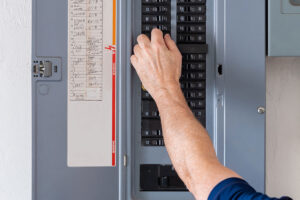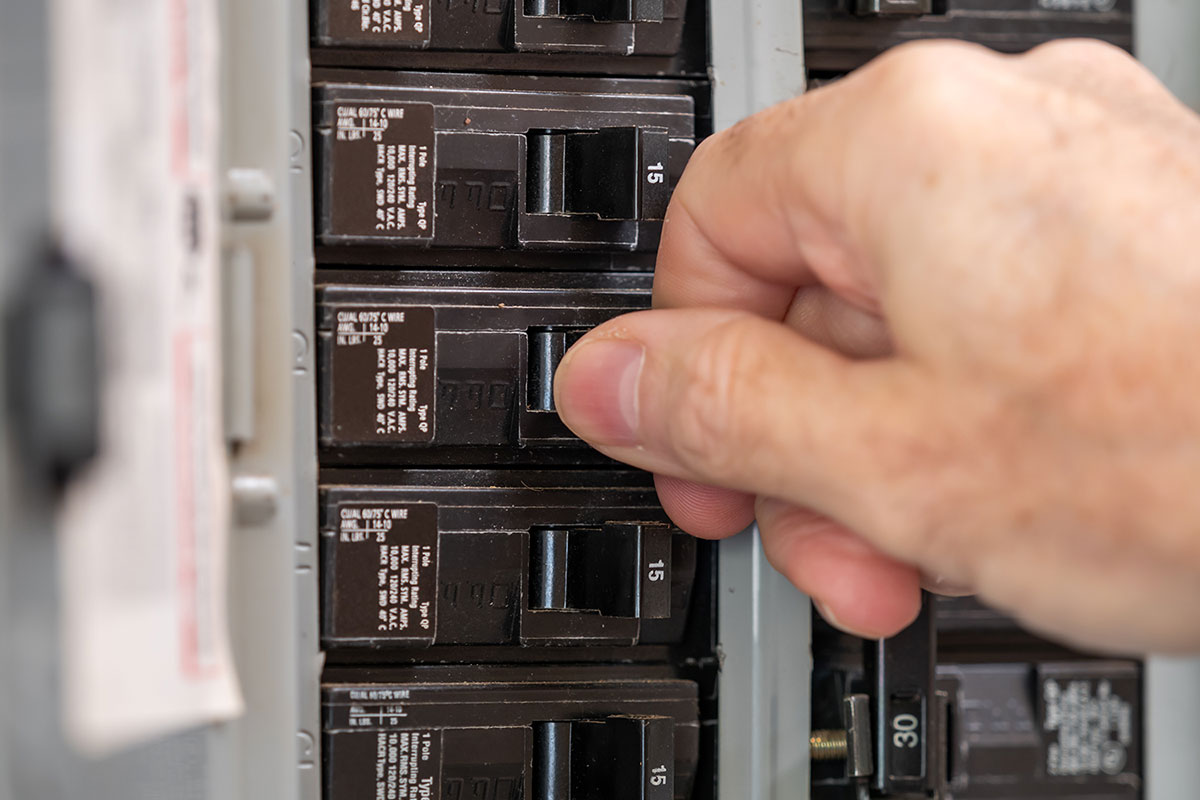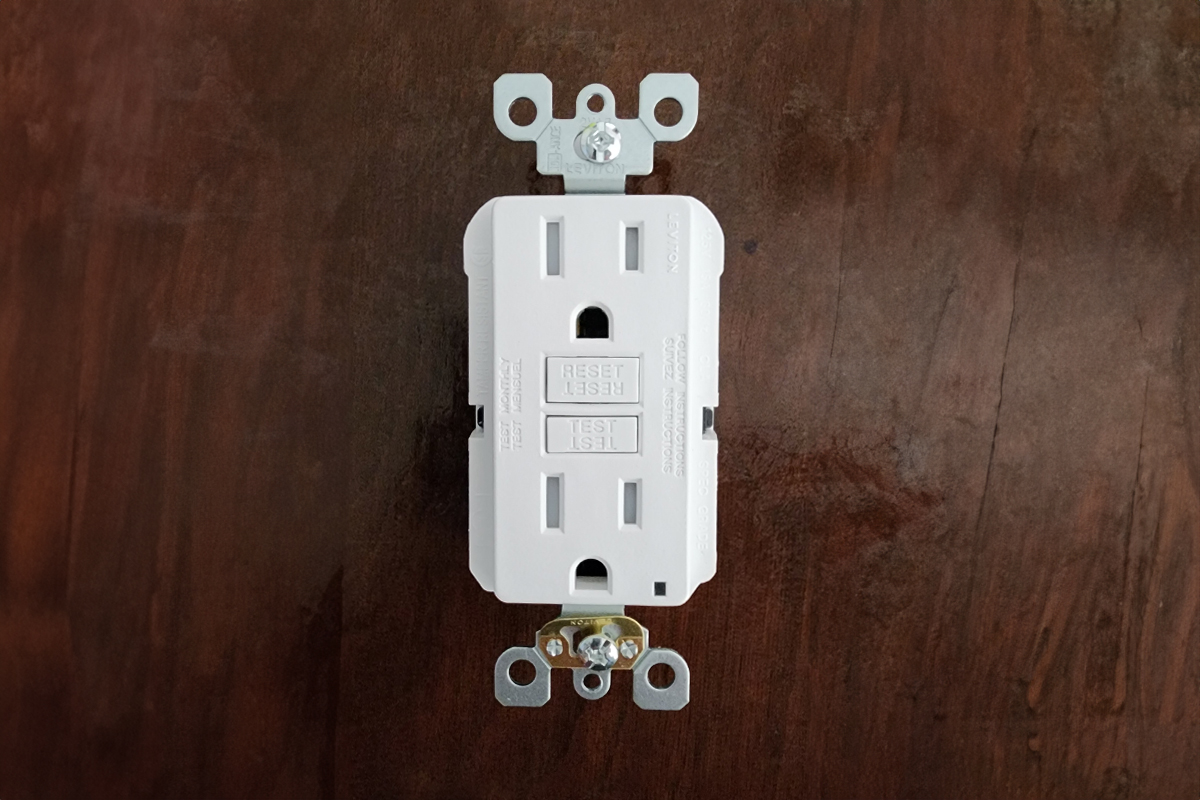Replacing Your Electrical Panel:
Table of Contents
A Smart Move for Home Safety and Efficiency
Your home’s electrical panel is like the heart of your electrical system. It’s where electricity from the utility company gets distributed to different circuits in your home. Consider an electrical panel replacement if you’ve been experiencing issues or have an older home. Here’s why:
Why Replace Your Electrical Panel?
1. Panel Age:
Most manufacturers recommend replacing electrical panels every 25 to 40 years. Over time, panels can deteriorate due to wear and environmental factors like humidity and temperature changes. An aging panel can become less efficient and more prone to issues, posing safety risks.
2. Breaker Failure:
Circuit breakers are designed to trip and shut off electricity when there’s too much current flowing through a circuit, protecting your home from electrical fires. However, as they age, breakers can become less reliable, potentially failing to trip when they should. This can leave your home vulnerable to electrical hazards.
3. Increased Electrical Demand:
Modern households often demand more electricity than older panels were designed to handle. If you’re upgrading your home with new appliances, home automation, or even a new addition, your existing panel might not be up to the task. An electrical panel replacement ensures you have the capacity to support all your electrical needs safely.
4. Safety Concerns:
Older panels can have outdated technology or be made by manufacturers that are no longer in business, like Zinsco or Federal Pacific Electric (FPE). These panels are known for having design flaws that can lead to overheating or failure to trip, which are significant fire hazards.
Understanding Your Electrical Panel
To understand why replacing your panel is important, let’s break down some of the basics:
– Electrical Panel:
This is the box, usually found in a basement, garage, or utility room, that houses your circuit breakers. It’s also called a breaker box, fuse box, breaker panel, fuse panel, or distribution board.
– Circuit Breakers:
These are the switches inside your panel that control the flow of electricity to different areas of your home. They’re designed to automatically turn off (or “trip”) if they detect an electrical overload or short circuit. There are single pole (120-volt) breakers that control things like standard receptacles and lighting, and two pole (240-volt) breakers that control some of the bigger loads like an electric furnace, AC or Heat pump, range, oven, dryer, water heater, etc.
– Main Breaker:
This is the switch that controls the power to all of the circuits in your home. It’s usually larger than the other breakers and can shut off electricity to the entire house in an emergency. These breakers are typically located at the top or bottom of your electrical panel and are separated from the other branch circuit breakers. If you do not currently have a main breaker like this, you might want to consider an electrical panel replacement.
Signs Your Panel Needs Replacement
1. Frequent Breaker Trips:
If your breakers are tripping more often than usual, it’s a sign that your panel might be struggling to handle the electrical load. This could be due to an aging connection between the breaker and the bussing on the panel. Overtime, pitting can occur as electricity tries to bridge the gap between the breaker and the bussing. This can cause more resistance and overheating of the breaker which can result in thermal tripping incidences.
2. Flickering Lights:
Lights that dim or flicker when you turn on an appliance might indicate an overloaded circuit or a failing panel.
3. Burning Smell:
A burning smell near your panel can signal overheated wires or breakers, which is a serious safety hazard. Overheating can damage both the breaker and the bussing, leading to an unstable electrical panel. This is a very serious symptom that should not be over looked.
4. Rust or Corrosion:
Visible rust or corrosion on your panel can indicate moisture damage, which compromises the electrical panel’s safety and effectiveness. Watch out for crumbling insulation! Over time, the non-conductive material separating live wires from the electrical panel’s frame can deteriorate. This exposes you to the risk of electrical shock and potential fire hazards. This is something unseen that only a licensed electrical contractor should inspect behind the electrical panel cover.
5. Panel Feels Warm:
If the panel or breakers feel warm to the touch, it’s a sign of potential overload or failing components. If your panel is nearing or over 40 years old, or is hot to the touch, it may be time for an electrical panel replacement. Schedule a consultation with a licensed electrician. Don’t wait to get your panel inspected!
6. Electric Panel Age:
Electrical panels typically reach the end of their recommended lifespan by around 40 years old.

Benefits of Upgrading Your Panel
– Improved Electrical Panel Safety:
A new panel reduces the risk of electrical fires and other hazards. Newer panels also offer an array of advanced breaker types such as Arc Fault, GFCI, and surge protection. Electrical contractors can install Arc Fault and GFCI protection at your electrical panel or directly as Arc Fault and GFCI outlets, depending on your specific needs.
– Increased Electrical Panel Capacity:
Modern panels can handle more circuits and higher electrical demand, making them suitable for contemporary homes. Some electrical panels allow “twinning” to add additional circuits but not all. The majority of older electrical panels do not allow more than twinning of the first 5 single pole breaker spaces on the bottom of each side. Some only allow the bottom two spaces, and some even less. Don’t overload your panel! Consult a licensed electrical contractor to see if your panel can handle extra circuits or if a replacement is necessary.
– Enhanced Electrical Panel Efficiency:
Newer panels with updated technology can distribute electricity more efficiently, potentially reducing your energy bills. Secure and solid connections allow electricity to flow freely throughout the system.
– Home Value:
Upgrading your electrical panel can increase your home’s value, making it a smart investment if you plan to sell your home in the future. Older, outdated electrical panels pose a safety hazard. Replacing these outdated panels can avoid issues during the sale of your home. Make sure that a panel replacement follows the NEC (National Electrical Code) and/or state or local jurisdictions that may supersede the NEC.
Conclusion
Replacing your electrical panel is an essential part of maintaining a safe and efficient electrical system in your home. Whether you’re dealing with an aging panel, experiencing frequent electrical issues, or simply want to ensure your home is up to date, upgrading your panel offers numerous benefits. It’s an investment in your home’s safety, functionality, and future value.
If you suspect your electrical panel needs replacement or you’re planning upgrades that will increase your electrical load, consult a licensed electrician to evaluate your current system and recommend the best solution for your home.
Need More Information?
For more tips and information on maintaining your home’s electrical system, contact your local electrical contractor. For the Salem/Keizer Oregon area, choose EdgeWise Electric.



